
Some say that the Toyota Rush is the sibling of the popular Fortuner--a baby Fortuner perhaps. Others say it's almost like a slightly bigger Avanza (considering they share the same platform), or a rebadged Daihatsu Terios/Taruna. And then, there are those that claim it's a toned-down version of the RAV 4, with some Innova on the side.
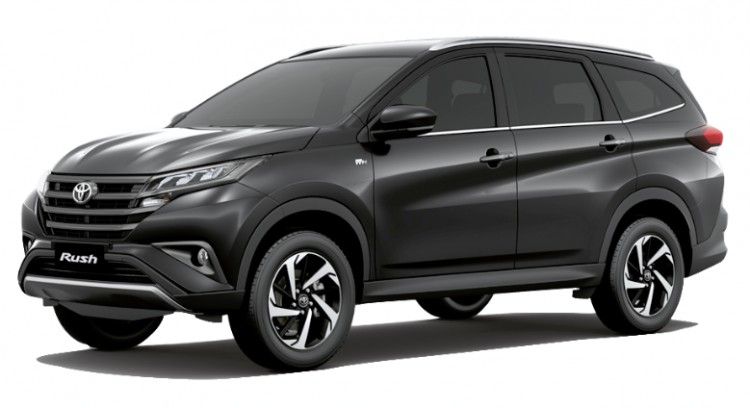 @toyotamotors.ph
@toyotamotors.phIn our case, however, we have only one thing to say about this: It's a Toyota Rush, period. This vehicle has enough attributes to make it a unique SUV on its own, and repeatedly comparing it to its older or younger siblings--or even cousins and great, great cousins--is an injustice in and of itself.
That's not to say we entirely like the Rush--it has some flaws in the performance department that we'd like to see changed. But it's capable of holding its own even without the incessant comparisons it keeps getting, because at the end of the day, the Toyota Rush is a small SUV first and foremost--and the rest is just fluff.
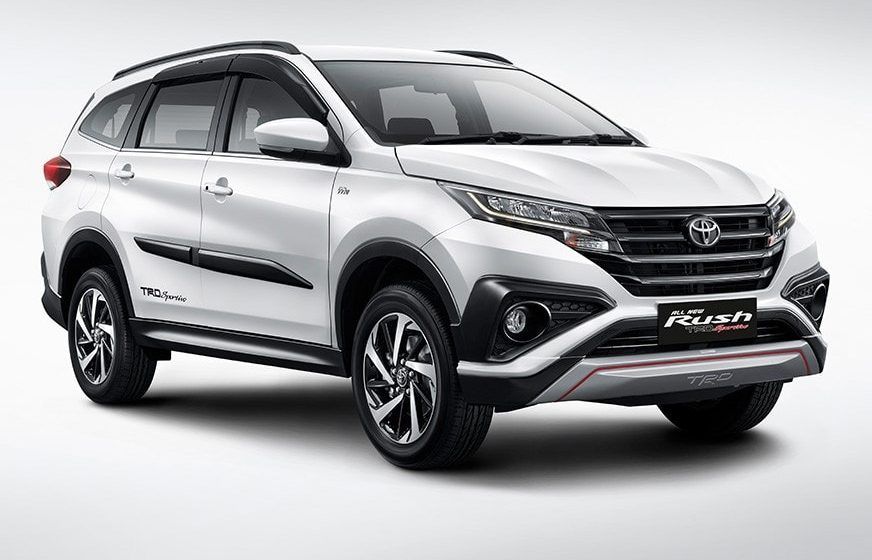
The second generation Rush is sportier and sharper-looking compared to its predecessor. The design is more dynamic, with the front fascia's chrome drill design offering a good balance of upsweep and down-sweep movements that make it look more interesting (and less conventional) than other crossovers today.
The 2018 Rush is now bigger, with a 4,435 mm (width) x 1,695 mm (length) x 1,705 mm (height) vital stats. We like how it stays true to its SUV roots by generously making the ground clearance high--220 mm to be exact. It's more than capable of slicing through floods like a hot knife on butter, and its 2,685 mm wheelbase offers more space inside as well.
Leaning to a more masculine silhouette, the bulging bumpers and sweeping headlights make it look like it's high on steroids and testosterone. We like the design of the 16-inch (for the E variant) and 17-inch (for the G-Variant) alloy wheels—they look cool and simple without trying too hard.
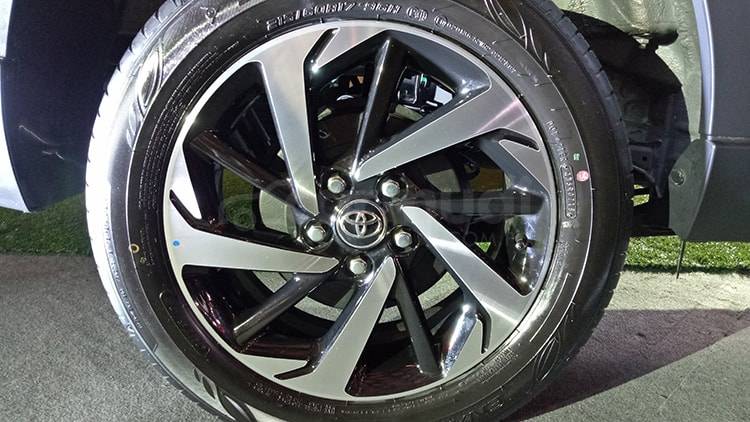
The 5- (E variant) or 7-(G variant) seater looks modern without going overboard. Space is good, but the third row on the G-Variant might be cramped if you're on the taller side. Still, there's enough room to make you feel comfortable, especially if you fold in the seats. Its trunk space is good enough: the G variant offers 213 L, while the E variant has 514 L.
By the way, the E variant doesn't have a third row, and with the absence of those heavy roof rails and spoilers make it lighter--and faster--when driven on city roads.
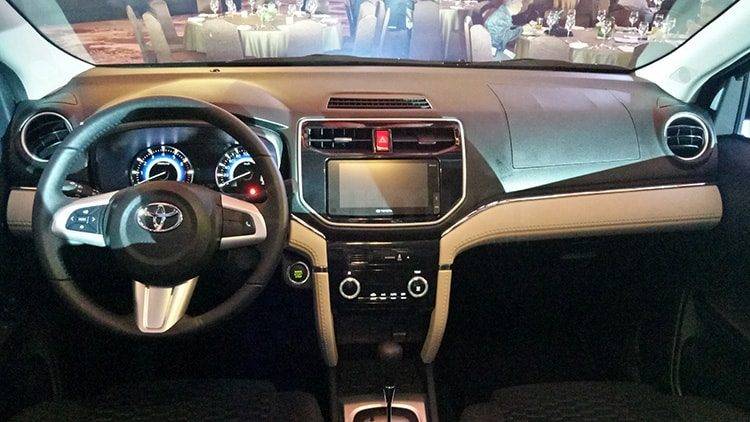
Our expectations fell quite a bit short here. Don't get us wrong--it's enough to be an entry-level SUV or crossover, especially for first-time owners. But we were really expecting it to be faster--and much torquier as well.
So here’s a tip: If you're like us who prefer "Fast and Furious" from time to time, then skip the G variant, because it only offers a four-speed automatic transmission. Better go with the E variant, which has a five-speed manual transmission option.
Also, are you the type who likes to drive on rocky slopes or terrain most of the time? Then the Rush isn't for you--especially the G variant (the roof rails will slow it down even more). This SUV does better on highways and urban roads, and perhaps the occasional rough terrain when the mood calls for it. It's really not built for hard, off-road driving--it does better in city driving.
Handling is good, and we like how solid it feels on the road--even when turning on corners. Sometimes though, it can get too solid to the point of getting too bouncy at the back. Still, they're compensated by the soft seat cushions and responsive steering.
The Toyota Rush has good features that make for a comfortable and pleasurable driving experience for everyone. For one, it offers good noise isolation to make things very comfortable inside. What's more, the sound system is quite good, with the G variant offering eight speakers, and the E variant offering six.
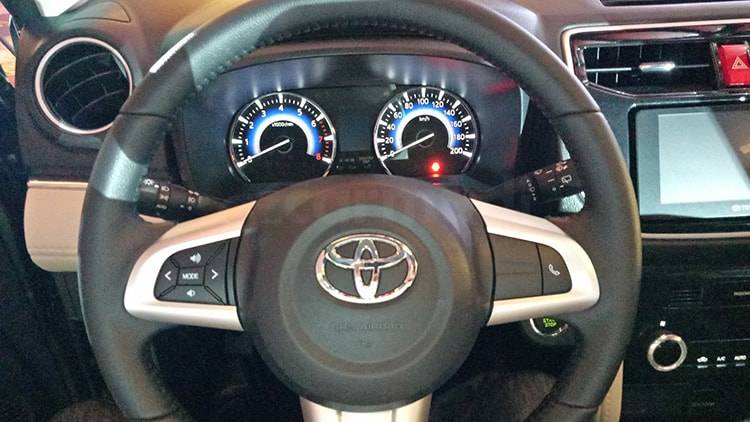
The steering wheel has a switch so you can easily access the audio (and telephone). And of course, don't forget the seven-inch touchscreen audio, CD/MP3, AUX, USB, Bluetooth, and Weblink for iOS/Android phones.
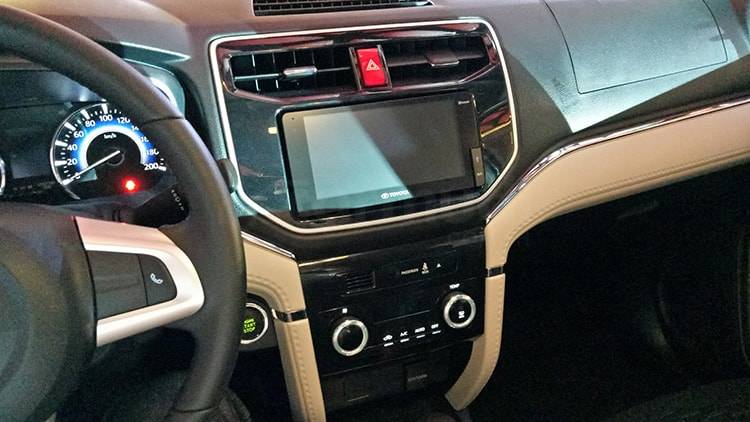
The Toyota Rush offers an average of about 7–8 km/L with three adults inside. At highway speeds, the seven-seater SUV was able to sip fuel at around 13 to 15 km/L.
SRS airbags (for driver, passenger, fronts side and curtain shields), Anti-Lock Brakes with Electronic Brake Distribution, Vehicle Stability with Traction Control, Hill Start Assist, Emergency Stop Signal, and Alarm with Immobilizer are just some of the features that you'll enjoy when you own a Toyota Rush.
The 2018 Toyota Rush comes with a 1.5-liter Dual-VVTi gasoline engine that can churn out 102 hp and 134 Nm of torque. It's offered in G variant (four-speed A/T) or E variant (four-speed A/T or five-speed M/T).
Admittedly, the Rush has a small engine, and coupled with a heavier and bulkier structure, make achieving higher speeds less efficient and far longer compared to those with bigger engines. And if you add in seven, hefty passengers after an intense pig-out session in an eat-all-you can buffet, then the acceleration gets significantly sluggish--so beware.
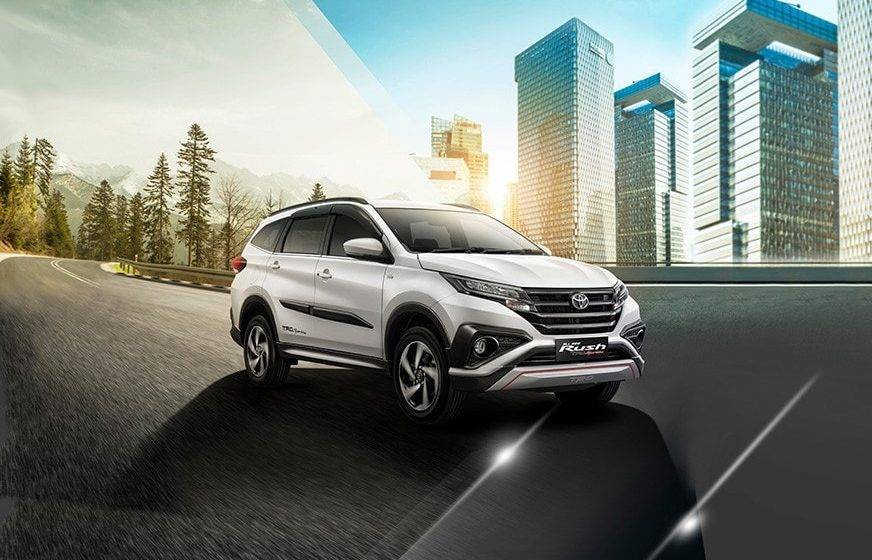
The Toyota Rush is a good starting point for anyone new to the SUV scene--or for anyone who primarily wants to use it more on urban roads than on rough terrain.
We'll repeat this again: if you prefer a speedier Rush, go for the E variant since it's much lighter on the road--just don’t make a habit of cramming its space with passengers and cargo alike. Better yet, carry less than three or four people and go minimalist with your things. This helps it perform at its best.
Prices are at PHP948,000 for the base manual E-Variant, PHP988,000 for the automatic E variant, and PHP1.07 million for the G variant.
Copyright © Carmudi 2014-2025. All Rights Reserved.